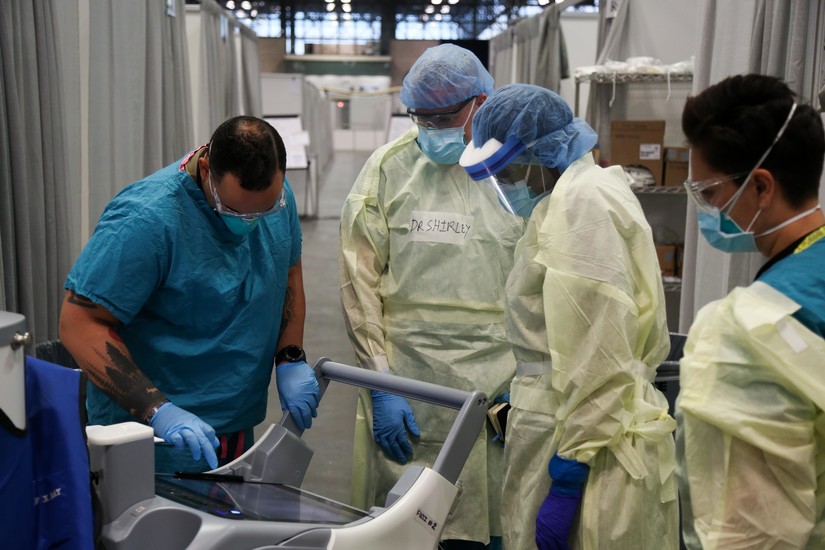Minority Communities Have Been Hit Hardest by Coronavirus
Photo Courtesy of Joint Base Langley-Eustis
Given that testing is largely unavailable, wealthier communities can show higher cases of Coronavirus simply because they can gain access to testing easier. The data from the Department of Public Health shows that ethnic minorities are being affected more than any other group.
Data published beginning on April 6 by the California Department of Public Health shows that minority communities, namely African Americans and Hispanics, are being disproportionately affected by COVID-19 with more confirmed cases and deaths due to factors associated with underlying health conditions and socioeconomic status.
In California, African Americans account for 6 percent of the population but make up 12 percent of all Coronavirus related deaths in the state, according to the Los Angeles Times. In the United States as a whole, African Americans are about 14 percent of the population but nearly 30 percent of those who have contracted the virus.
The numbers are present in other countries, as well. In Norway, people born in Somalia have contracted the virus at rates 10 times higher than the national average, according to FT News. In the United Kingdom, the Bame ethnic minority group accounts for roughly 13% of the population but nearly a third of those admitted to the intensive care unit for Coronavirus.
“It is not surprising that they are more likely to contract a virus of this nature, and there may be many causes of that,” social studies department chair Jon Resendez said. “One is that if you are African American, you are more likely to be lower-income or poor. In that sense, you would not have the ability to stop working and shelter in place….It is not so much a matter of race as it is the fact that lower socioeconomic status ties to race in our country, which goes all the way back to our legacy with slavery.”
African American and Hispanic minorities are also more likely to experience poverty than their white counterparts, according to the American Psychological Association. This limits access to healthcare that could potentially save one’s life in this situation.
“In these times, I think we need to have a more equitable distribution of healthcare resources,” senior Samira Feili said. “If we do not, then it can just continue the spread of the virus and keep us indoors longer. It may also hurt specific communities more than others because they cannot afford these healthcare resources.”
Health experts attribute part of the reason to the higher rates of underlying health conditions many minorities, especially African Americans, face.
“We have a particularly difficult problem of an exacerbation of a health disparity,” Director of the National Institute of Allergy and Infectious Diseases Anthony Fauci said. “We’ve known literally forever that diseases like diabetes, hypertension, obesity and asthma are disproportionately afflicting the minority populations, particularly African Americans.”
Your donation will support the student journalists of Portola High School. Your contribution will allow us to purchase equipment and cover our annual website hosting costs.

Maya Sabbaghian is one of two 2019-2020 Managing Editors. A staff member since 2016, Maya has previously served as a 2017-2018 Editor-in-Chief, and as...




